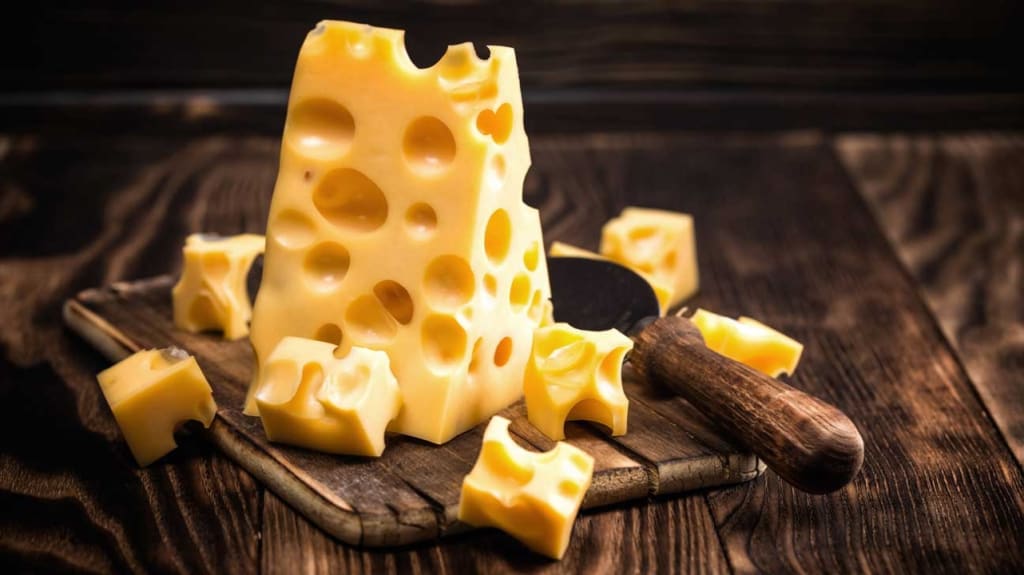
Long before kings and queens, before people made things out of clay and wrote things down, and before people had metal tools and weapons, there was cheese! Way back in 8000 BCE, people who lived in the Fertile Crescent started making cheese. They were farmers who had sheep and goats, and they would get milk from them. When the milk was left out in the warm air for a while, it would start to get sour and clumpy. The farmers figured out that they could eat the clumps, which were called curds. They could also drain the liquid part, which was called whey. The curds were the start of cheese! People could eat cheese instead of drinking milk because it had less lactose, which is a sugar that some people can't digest well. Cheese was really important because it could be saved for later and eaten during times when there wasn't much food. People in Mesopotamia, which was a big city a long time ago, loved cheese so much that they wrote down how much cheese they had and what kinds of cheese they had. Cheese was really good for people because it had lots of important things like protein, fat, and minerals.
Long ago, people in Turkey used something called rennet to make cheese. Rennet comes from the stomachs of certain animals and helps the milk turn into cheese faster. This made it easier for people to make different kinds of cheese all over the world. Some people didn't like cheese at first, but others loved it and made their own kinds. For example, Mongolians used yaks' milk to make a hard cheese called Byaslag. Egyptians made cottage cheese from goats' milk. In South Asia, they used things like lemon juice or yogurt to make a soft cheese called paneer. The Greeks made a salty cheese called feta, and the Romans even gave cheese to their soldiers as food. Later on, monks in Europe made even more kinds of cheese by trying different things with milk and aging.
Did you know that some of the most delicious cheeses we enjoy today were actually created by monks? Parmesan, Roquefort, Munster, and many Swiss cheeses were all made by these holy men. In the Alps, Swiss cheese making was especially successful, and they made lots of different kinds of cow's milk cheeses. By the end of the 14th century, cheese from the Gruyere region of Switzerland was so popular that a neighboring state invaded to take control of the cheese trade. Cheese has been popular for centuries, and even though machines now help make it, some farms still make cheese by hand like our ancestors did 10,000 years ago. Today, the world produces about 22 billion kilograms of cheese every year, and people all over the world love to eat it!
Did you know that there are over a thousand different types of cheese? They come from all over the world and taste different depending on where they come from. The way the cheese tastes, feels, and looks depends on a lot of things like what the animal ate, if the milk was pasteurized, how much fat is in the milk, and how long the cheese was aged. Sometimes, people add things like herbs, spices, or smoke to make the cheese taste even better. Cheesemongers are people who know a lot about cheese and can help you pick out the best ones. Some cheeses are made by adding vinegar or lemon juice to the milk, while others use bacteria to turn the milk into cheese. Some people use a special ingredient called rennet to make cheese, but there are also vegetarian options available. If you live near a place where they make cheese, you might be able to get fresher milk and save money on shipping costs.
About the Creator
Enjoyed the story? Support the Creator.
Subscribe for free to receive all their stories in your feed. You could also pledge your support or give them a one-off tip, letting them know you appreciate their work.





Comments
There are no comments for this story
Be the first to respond and start the conversation.